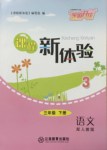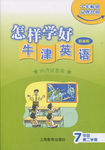题目内容
The measure of a man’s real character is what he would do if he knew he would never be found out.
— Thomas Macaulay
Some thirty years ago, I was studying in a public school in New York. One day, Mrs. Nantette O’Neill gave an arithmetic ___1___ to our class. When the papers were ___2___ she discovered that twelve boys had made exactly the ___3___ mistakes throughout the test.
There is nothing really new about ___4___ in exams. Perhaps that was why Mrs. O’Neill ___5___ even say a word about it. She only asked the twelve boys to ___6___ after class. I was one of the twelve.
Mrs. O’Neill asked ___7___ questions, and she did not ___8___ us either. Instead, she wrote on the blackboard the ___9___ words by Thomas Macaulay. She then ordered us to ___10___ these words into our exercise-books one hundred times.
I don’t ___11___ about the other eleven boys. Speaking for ___12___ I can say: it was the most important single ___13___ of my life. Thirty years after being ___14___ to Macaulay’s words, they ___15___ seem to me the best yardstick(准绳), because they give us a ___16___ to measure ourselves rather than others.
___17___ of us are asked to made ___18___ decisions about nations going to war or armies going to battle. But all of us are called ___19___ daily to make a great many personal decisions. ___20___ the wallet, found in the street, be put into a pocket ___21___ turned over to the policeman? Should the ___22___ change received at the store be forgotten or ___23___? Nobody will know except ___24___. But you have to live with yourself, and it is always ___25___ to live with someone you respect.
1. A. test B. problem C. paper D. lesson
2. A. examined B. completed C. marked D. answered
3. A. easy B. funny C. same D. serious
4. A. lying B. cheating C. guessing D. discussing
5. A. didn’t B. did C. would D. wouldn’t
6. A. come B. leave C. remain D. apologize
7. A. no B. certain C. many D. more
8. A. excuse B. reject C. help D. scold
9. A. above B. common C. following D. unusual
10. A. repeat B. get C. put D. copy
11. A. worry B. know C. hear D. talk
12. A. myself B. ourselves C. themselves D. herself
13. A. chance B. incident C. lesson D. memory
14. A. referred B. shown C. brought D. introduced
15. A. even B. still C. always D. almost
16. A. way B. sentence C. choice D. reason
17. A. All B. Few C. Some D. None
18. A. quick B. wise C. great D. personal
19. A. out B. for C. up D. upon
20. A. Should B. Must C. Would D. Need
21. A. and B. or C. then D. but
22. A. extra B. small C. some D. necessary
23. A. paid B. remembered C. shared D. returned
24. A. me B. you C. us D. them
25. A. easier B. more natural C. better D. more peaceful
1. A2. C3. C4. B5. A6. C7. A8. D9. A10. D11. B12. A13. C14. D15. B16. A17. B18. C19. D20. A21. B22. A
23. D24. B25. C
【解析】文章主要讲作者 30 年前读中学时因考试舞弊所接受的特殊教育对自己后来一生的重大影响。
1. A。根据本段最后一句的 mistake throughout the test)可显然看出。
2. C。mark 用作名词,表示“分数”,用作动词,表示“给…打分”。本句中的 marked 表示“打分”或“批改”。
3. C。老师认为其中12个男生舞弊,其依据就是他们试卷上的错误“完全一样(exactly the same)”。
4. B。/ 5. A。此处的语境是:由于当时考试舞弊(cheating)并不是什么新鲜事,所以老师对此只字未提(didn’t even say a word about it)。
6. C。remain 在此表示“留下”。
7. A。注意下文的 not…either(也没有…),它表明上文应该表示否定意义。
8. D。此句语境为:老师既没有质问我们,也没有处罚(scold)我们。(这是为下文作铺垫)
9. A。根据本句后面的 by Thomas Macaulay 可知,此处提到的就是文章开头的那句话,故填 above。
10. D。根据常识和比较四个选项,可知此题 D 最佳。
11. B。比较四个选项,只有 know 与空格后的介词 about 搭配在此合符语境。
12. A。由于不知道其他同学的情况,所以就谈“我自己”(myself)。
13. C。此处句意为“这是我一生中最重要的一课(lesson)”。
14. D。请注意 introduce sb to sth 这一结构,不要把它直译为“把某人介绍给某物”,其实际意思是“使某人认识或了解某事物”,其被动式 be introduced to sth 表示(某人)认识或了解某事物。
15. B。根据上下文的意思和作者的在文中的态度可知,老师要我们抄写的 Macaulay 的这句话,对我来说现在“仍然(still)”是最好的准绳。
16. A。way 的意思是“方法”,a way to measure oneself 在此表示“检测某人行为的方法”。
17. B。/ 18. C。根据一般常识:关于国家与军队参战这样的决定不一般人能作出的(故用 few of us 与语境较吻合),同时这样的决定显然属于重大的(great)决定。
19. D。此处语境是:我们虽然不作出国家或军队参战这样的重要决定,但我们每天都要作出一些个人的小决定。句中涉及的句型 call upon sb to do sth 表示要求某人做某事。
20. A。注意第 20 至 23 题所涉及的两个句子的句型相为相似,注意互相参照。第 20 空填 should 即可从第 22 空前的 should 得到启示。
21. B。此题填 or 可从第 23 空前的 or 得到启示。
22. A。extra change received at the store 在此指在商店被多找的零钱。此句意为:在商店被多找(extra)的零钱是应该被忘记(forgotten)还是应该退给(returned)店主?
23. D。比较四个选项并结合一般常识可知 D 最佳。
24. B。根据下文 But you have to live with yourself… 可知此处应选 you,否则上下文人称不一致。
25. C。根据本句句意可推知答案。

 芝麻开花课程新体验系列答案
芝麻开花课程新体验系列答案 怎样学好牛津英语系列答案
怎样学好牛津英语系列答案Freda Bright says, "Only in opera do people die of love." It's true. You really can't love somebody to death. I've known people to die from no love, but I've never known anyone to be loved to death. We just can't love one another enough.
A heart-warming story tells of a woman who finally decided to ask her boss for a raise in salary. All day she felt nervous and late in the afternoon she summoned the courage to approach her employer. To her delight, the boss agreed to a raise.
The woman arrived home that evening to a beautiful table set with their best dishes. Candles were softly glowing. Her husband had come home early and prepared a festive meal. She wondered if someone from the office had tipped him off, or... did he just somehow know that she would not get turned down?
She found him in the kitchen and told him the good news. They embraced and kissed, then sat down to the wonderful meal. Next to her plate the woman found a beautifully lettered note. It read: "Congratulations, darling! I knew you'd get the raise! These things will tell you how much I love you."
Following the supper, her husband went into the kitchen to clean up. She noticed that a second card had fallen from his pocket. Picking it off the floor, she read: "Don't worry about not getting the raise! You deserve it anyway! These things will tell you how much I love you."
Someone has said that the measure of love is when you love without measure. What this man feels for his wife is total acceptance and love, whether she succeeds or fails. His love celebrates her victories and soothes her wounds. He stands with her, no matter what life throws in their direction.
Upon receiving the Nobel Peace Prize, Mother Teresa said: "What can you do to promote world peace? Go home and love your family." And love your friends. Love them without measure.
【小题1】The sentence in the first paragraph “Only in opera do people die of love.” means _______.
| A.no love in the world is believable |
| B.love is one thing, and life is another |
| C.love in operas is truly touching |
| D.love can survive forever, though people die at different ages |
| A.he loves her because he believes that she is sure to receive a raise |
| B.he has a great way to promote his wife’s love towards him |
| C.he had a false love for people even if the person is his wife |
| D.he loves his family members truly, whether they are in good conditions or not |
| A.refuses any spiritual emotions as embraced and kissed |
| B.criticize the attitude of suspicion (怀疑) of the love |
| C.doesn’t believe there is true love in the world |
| D.thinks the true love does not expect repayment |
Australians have been warned they face a life or death decision over their water — drink recycled sewage (污水) or die.
With the drought (干旱) continuing, the country is set to be forced to use purified (净化的) waste water for drinking, even though there is great opposition to the measure.
Queensland has become the first state to introduce the policy after a warning from its premier.
“I think in the end, because of the drought, all of Australia is going to end up drinking recycled purified water,” said Peter Beattie.
“These are difficult decisions, but you either drink water or you die. There’s no choice. It’s liquid gold; it’s a matter of life and death.”
Beattie said Australia’s second largest state would become the first to use recycled water for drinking.
Water is recycled in Britain and parts of northern Europe along with the US and Israel.
But Australians have never liked the idea.
To try to change the way Australians think, Prime Minister John Howard and Environment Minister Malcolm Turnbull have adhered to Queensland’s move.
“I am very strongly for recycling and Mr. Beattie is right and I agree with him completely,” Howard said.
“Australian cities, all now facing water shortages because of the worst drought on record, must start to use recycled water.” added Turnbull, “All of our big cities have to widen the range of water sources to include sources which are not dependent on rainfall.”
【小题1】What is the text mainly about?
| A.Australians face the choice of life and death. |
| B.Premier Beattie is worried about his people’s health. |
| C.We should avoid drinking recycled water to keep healthy. |
| D.Continuing drought forces Australians to drink recycled sewage. |
| A.Australians have never like drinking purified waste water. |
| B.Australians should develop more water sources to live through the hard time. |
| C.Australians can’t depend upon rainwater, which is not suitable for drinking. |
| D.Australian government has no ability to solve the problem of water shortage. |
| A.disliked | B.gone against | C.supported | D.doubted |
| A.he gives orders to drink purified waste water |
| B.It is painful for him to see people drink recycled sewage |
| C.If the decision is made, people won’t survive the drought |
| D.It’s totally up to you to either make a life or death decision |